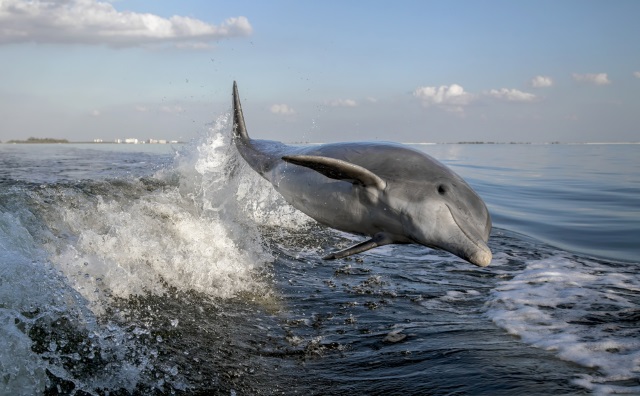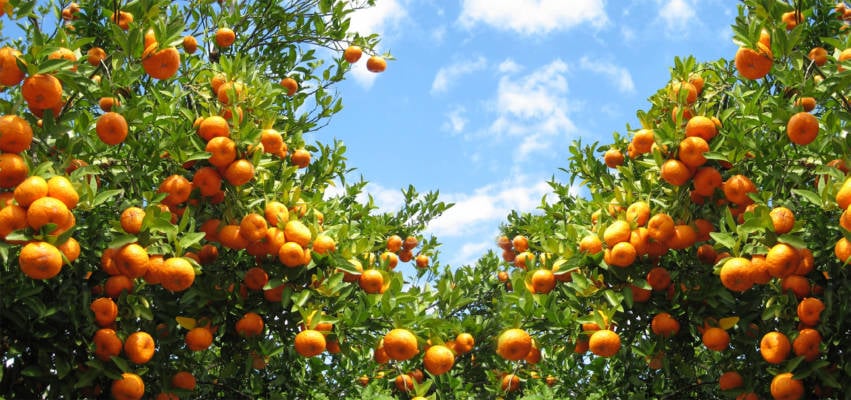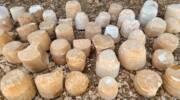Little by little, guided therapy with dolphins swimming freely in the Red Sea helps children feel more successful, confident, patient and resilient.
By Abigail Klein Leichman, ISRAEL21c
Day after day, a child got into scuffles at school and was sent home. Hyperactive and impulsive, he would touch other children and strike out if they pushed him away. His mother tried disciplining him, but the situation became unbearable.
Finally she took him to Sophie Donio, pioneer of a unique animal-assisted therapy program, Supportive Experience with Dolphins, at the Dolphin Reef in the Israeli resort city of Eilat at the northern tip of the Red Sea.
Over the course of a year, the sessions gradually transformed both the boy and his mother.
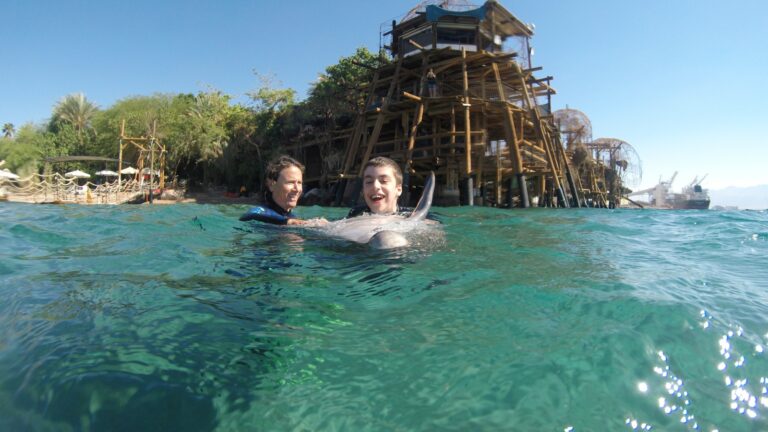
“Little by little, we managed to teach him tricks to stop his impulsive behaviors and be more patient. But the most amazing change was with the mother,” Donio tells ISRAEL21c.
“She now understands that her son is a cute boy who is suffering because he cannot help his behavior. She told me, ‘I finally see him.’
“Instead of shouting at him or punishing him, she has become his advocate and defender, and is working with the school to find methods to help him.”
No hocus pocus
Every year since 1991, about 35 children aged five to 18 have undergone therapy at the Dolphin Reef.
They come with emotional challenges stemming from many possible causes: post-traumatic stress disorder, autism, dyslexia, behavioral issues, Down syndrome, depression, cancer, sexual abuse.
Dolphin therapy is not magic, Donio emphasizes.
It is an intense program of 30 to 40 sessions. Local clients come once a week. Those living farther north come every month for four consecutive days, while European clients stay for two weeks every two months.
The 2011 documentary “Dolphin Boy” followed the progress of Morad, an Israeli Arab teen who suffered severe trauma that left him dysfunctional, through four years of therapy at the Dolphin Reef.
“There is no hocus pocus. It’s not like they come here and go home cured. It is a process as the child learns to overcome frustration,” says Donio.
The basic concept is to help clients feel more successful and confident, patient and resilient. Physical changes also occur; even walking along the gently rocking pier improves movement and balance.
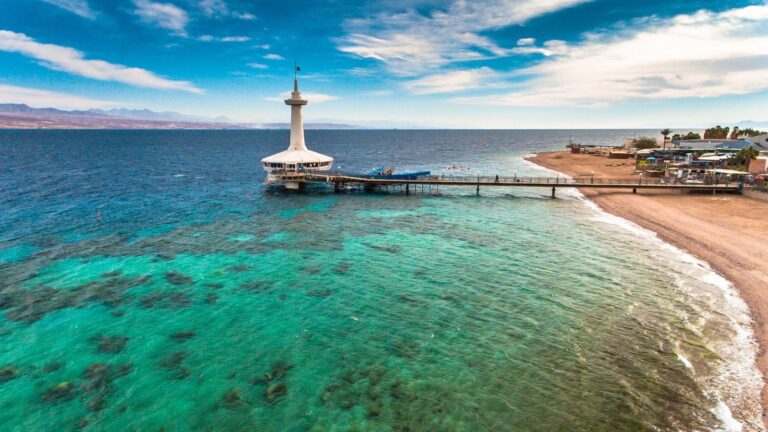
Child and dolphin are free to choose
At every session, the child can choose to interact with the dolphin on the platform adjacent to the pier or in the water.
Either way, “The dolphin approaches by free will — and if it doesn’t, the child has to accept the frustration. Once the dolphin arrives, the joy is so great because the children understand and feel that the dolphin is choosing to come to them,” Donio explains.
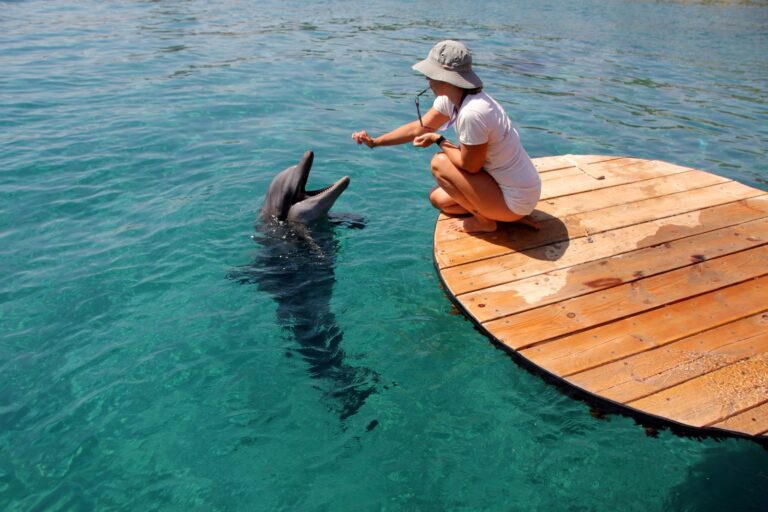
Sessions take place early, before the site opens to tourists. And while paying visitors may not touch the dolphins, says Donio, “in therapy touch is very important.”
She directs the children to play games with these intelligent creatures, to pet them gently and never to chase or scare them. The emphasis is on having fun, but the kids also assist in caregiving tasks.
Learning how to interact appropriately with the animals leads the kids to understanding how to interact appropriately with humans.
Their parents are always present during the two-hour sessions because Donio believes a family therapy approach is essential.
Although she didn’t invent dolphin therapy, she adapted it to the Dolphin Reef, which is unusual in that the dolphins are neither captive nor trained to expect food as a reward.
Their freedom is a key factor in Donio’s therapeutic model.
From horses to dolphins
Donio, now in her 50s, was born in France and grew up around horses. She continued riding after her family moved to Israel.
Hoping to open a horse therapy ranch after her military service, she began learning veterinary medicine but quit after a year because it was too difficult.
Instead, she went to Eilat in 1990 to seek work as a diving instructor. Nir Avni, general manager of the Dolphin Reef, hired her for the dive center he was opening there.
“Later we developed a ‘Swim with the Dolphins’ program and I could see the smiles, the tears, the many emotional reactions. I thought, why not give this to people who need it more? And I started to read about dolphin therapy,” says Donio.
She visited the Human Dolphin Therapy Center in Miami, which treats people with neurological and movement disorders. She saw immediately that it was totally different than the Dolphin Reef.
“Here, the dolphins are as close as possible to nature. They’re free to go in and out of the sea and catch fish. They are never separated from their families and have a good social life. We do human-dolphin interactions according to their own will, not for rewards except touching and patting.”
In parallel to earning degrees in psychology and psychotherapy, Donio started doing dolphin therapy at the reef, learning as she went.
“I am still learning and improving today,” says Donio, who recently counseled earthquake survivors in Turkey as a volunteer with United Hatzalah’s Psychotrauma and Crisis Response Unit.
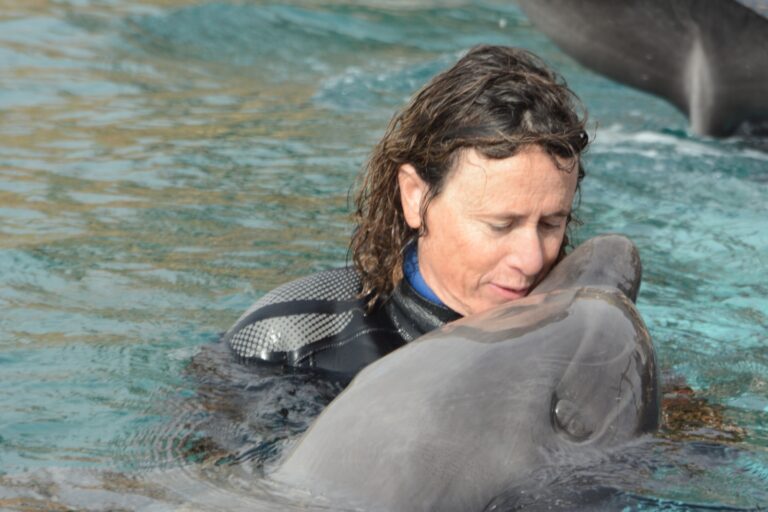
In addition to working with three children per day, she frequently lectures and speaks at conferences. She also teaches biology and psychology at Ben-Gurion University of the Negev and has started a therapeutic program for sexually abused women.
“I arrived in Eilat at age 22 and after a few months I realized I’d found my purpose in the world, something I had been searching for since I was little,” Donio says.
“The love of the dolphins built me up and today it’s not about me but about helping others. When I see children and parents become happy, it makes me really satisfied. This is my reward.”
MAKE THE LAND OF ISRAEL EVEN MORE BEAUTIFUL!
PLANT YOUR VERY OWN FRUIT TREES IN ISRAEL!
Farmers near the Gaza border lost family, friends and workers. Spring is here, and they desperately need help to replant the farms. Join us in blessing the People and Land of Israel.
“I will ordain My blessing for you…” (Leviticus 25:4)
